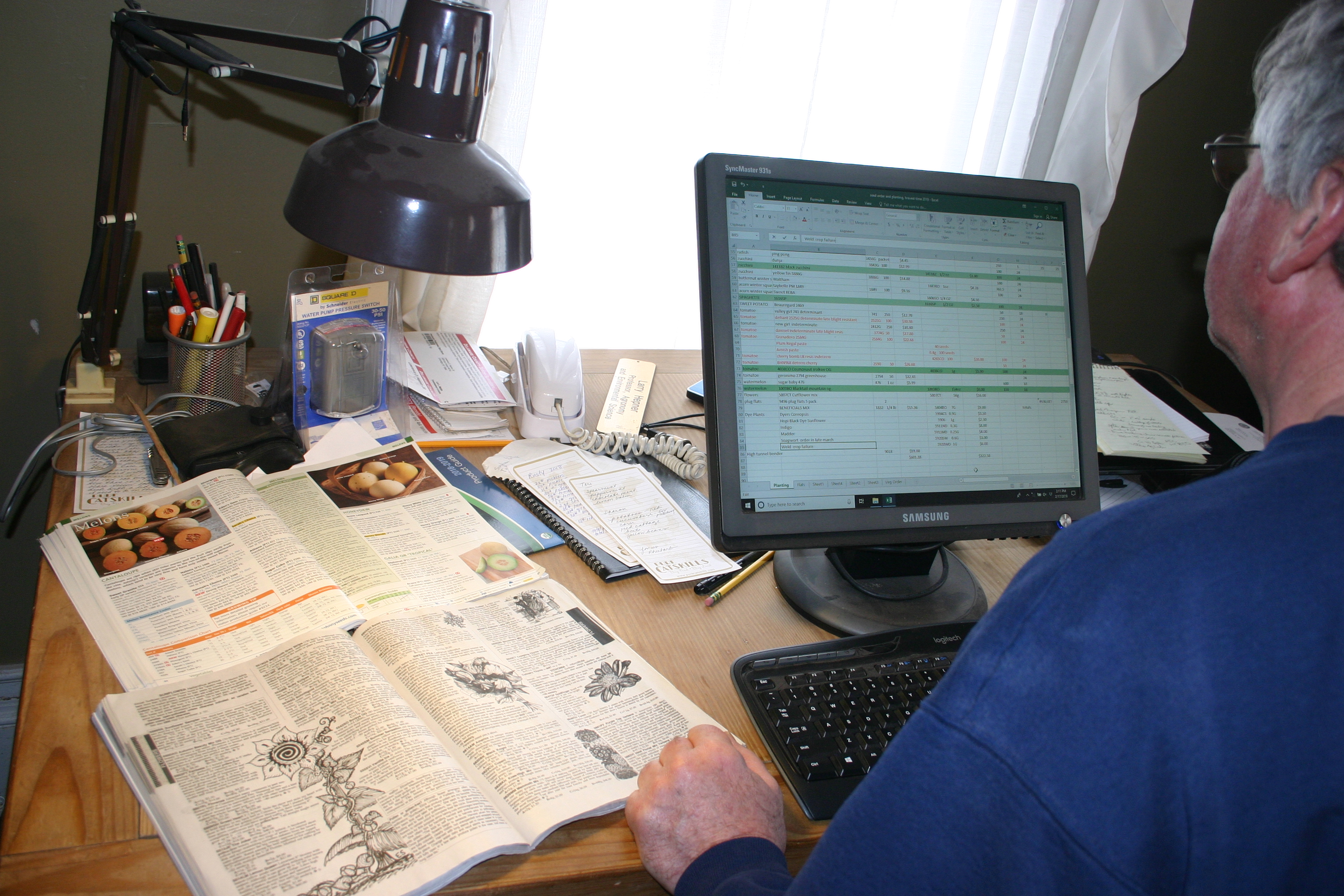“To plant a garden is to believe in tomorrow.” – Audrey Hepburn
2/27/19, 2:28 PM
By: Diane Frances
As farmers we pay attention to the weather forecast all the time. We depend on the National Weather Service for short and long range outlooks as we plan our day to day activities and as we think about what and how to grow our vegetables. Of course our customers give us the best insights into food trends, but the weather and our soil dictate what we can produce successfully on our farm.
Larry is a soil scientist and an agronomist and has had his hands in the soil in one way or another since he was a boy. The soil is in his blood. Really. When we decided to pursue agriculture here in the western Catskills at 1800+ feet elevation in, shall we say, less than ideal soil conditions, he took it on as a personal and professional challenge. By laying out contour crop strips and buffer grass strips on the sloped land to stabilize the soil and reduce run off, by building a substantial composting operation to return nutrients to the soil and enhance its tilth, by using a crop rotation with legumes to naturally restore nitrogen, and through intensive rotational grazing of our farm animals, Larry has created a minor miracle with our rocky, wet, heavy soils. Each year our vegetable garden is more productive than the last, and I don’t think it is my imagination, the vegetables are tastier too.
Like many farmers, we are on the front lines of climate change. Each season we experience the increasingly dramatic weather events and continue to think about how to adapt. Our baseline farming methods that nurture the soil and increase its organic matter provide us with a great deal of resilience, holding water in the soil structure during drought and enabling it to move through more readily in rainy conditions. By letting the living organisms in the soil do the work of feeding the plant as nature intended, in our small scale we are also supporting the soil and the plants as they act as a carbon sink, converting CO2 in our atmosphere to oxygen and food for us through photosynthesis as the plants and the life of the soil are fed.
This time of year Larry buries his head in seed catalogues, exploring more open pollinated and more heirloom – fancy for naturally adapted and pest resistant – varieties to give us an edge against the vagaries of the weather. As the idea of climate change and its many implications for our planet, for all of us, sink in, it might be a natural, even understandable reaction to find a different career. Who knows what the future holds. What we do know is that we will be planting a garden this year. We believe in tomorrow. And we’ll keep doing our best to help it along.

